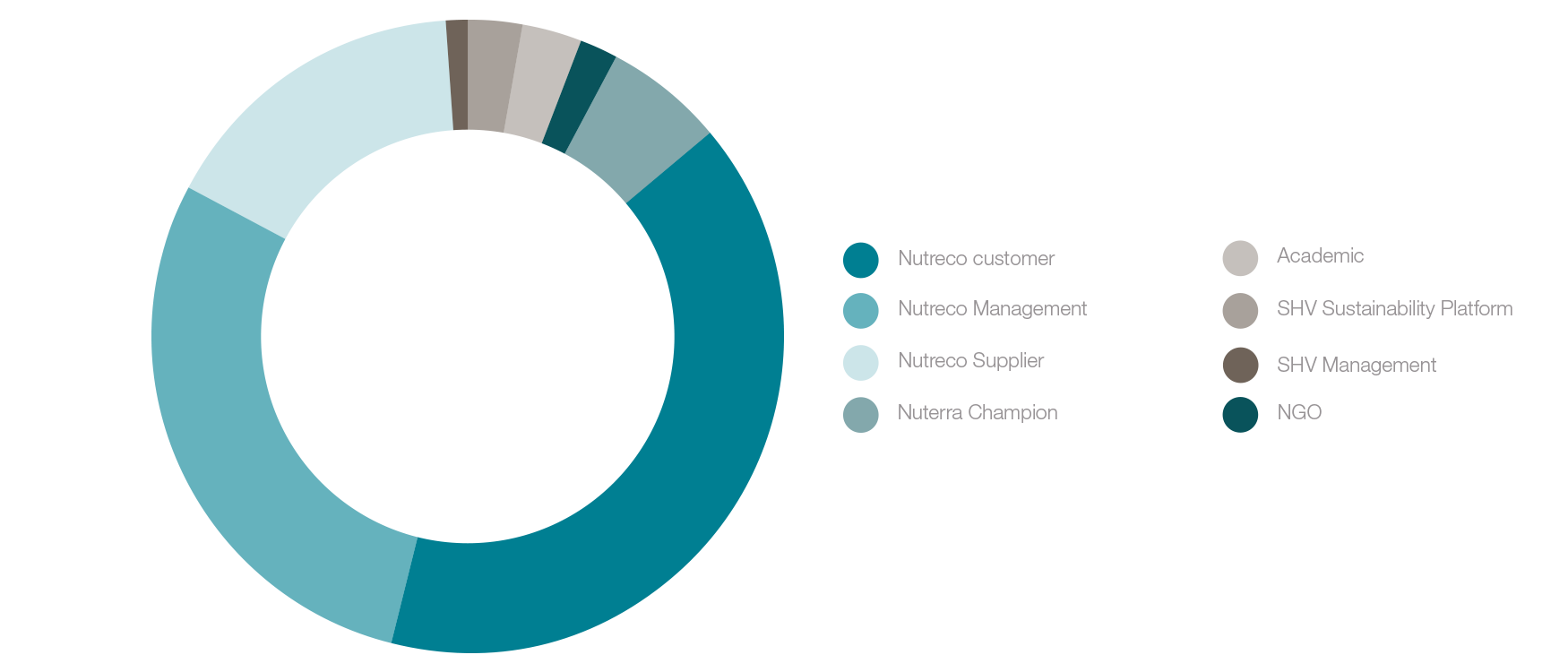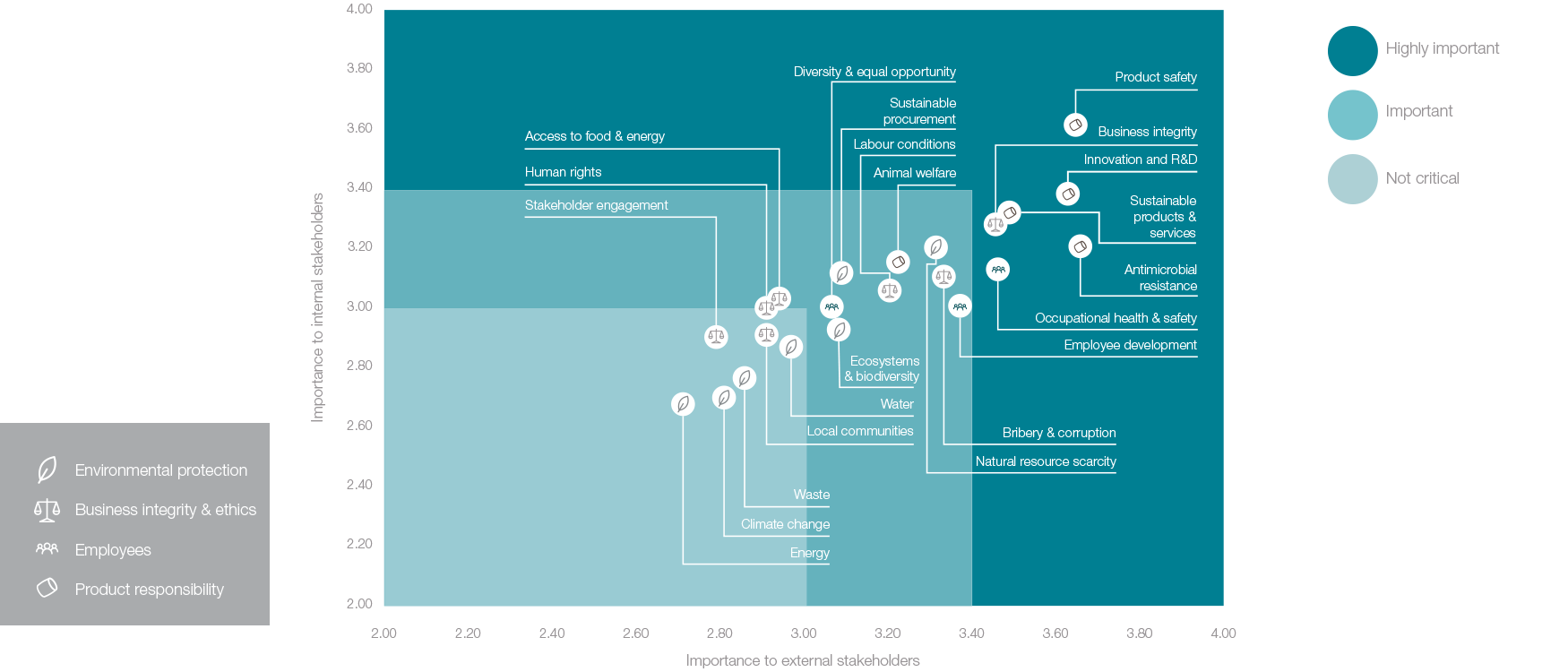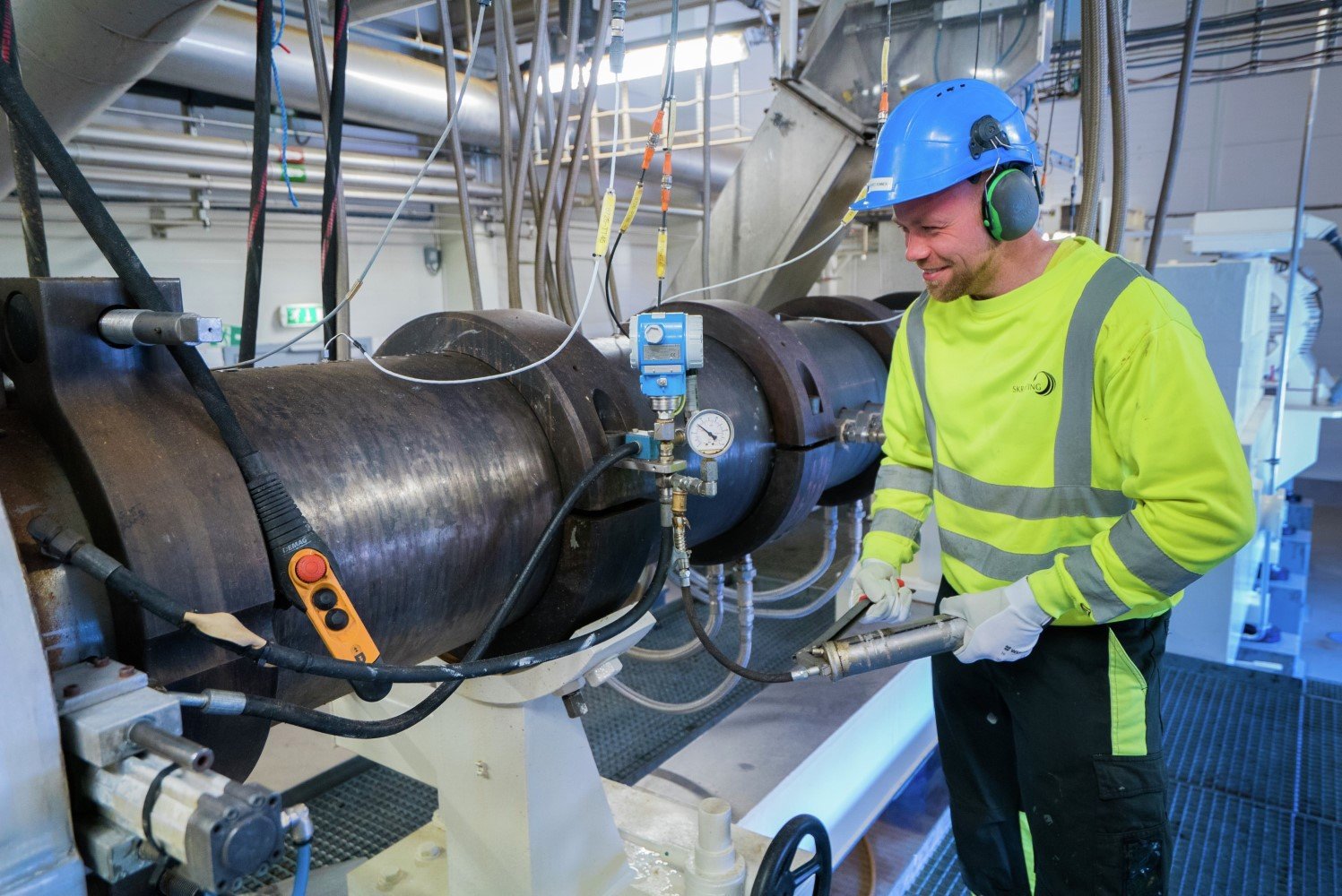
Our RoadMap to 2025 will be based on this materiality assessment, which addresses the major issues perceived by our stakeholders to be important or to be issues we can have influence due to our position in the food value chain. The materiality assessment does not reflect whether an issue is material or not for society. In other words, a low material score on issues such as water use, waste generated or energy does not mean that these issues are not important for our planet, but rather that stakeholders do not believe Skretting and Nutreco have a potentially game-changing role in mitigating them. For example, we do not use enough energy or water to be a major influencer on these impacts.








